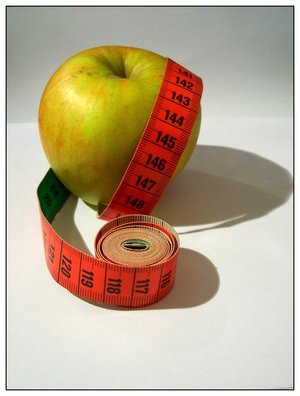The Body Image Project
 Tuesday, December 8, 2009 at 03:05PM
Tuesday, December 8, 2009 at 03:05PM  Body image has been on my mind a lot lately. I feel like no matter where I go, who I talk to, what I'm watching on TV or reading, it seems that I have been encountering a barrage of fat talk and concern over weight and bodies. Yes, I may be more aware and sensitive to such topics than the average person, as I do therapy with many women who have eating disorders. But my observations about body image lately are those that go well beyond my work. I have felt the intensity of the media's powerful communication of messages through images (and otherwise) and have really been at a loss. It seems that our culture is so saturated with the value of beauty = skinnyness, and it is difficult to avoid unless you hunker down and go live in a cave! How did we get here? That question has been occupying a lot of space in my thoughts recently.
Body image has been on my mind a lot lately. I feel like no matter where I go, who I talk to, what I'm watching on TV or reading, it seems that I have been encountering a barrage of fat talk and concern over weight and bodies. Yes, I may be more aware and sensitive to such topics than the average person, as I do therapy with many women who have eating disorders. But my observations about body image lately are those that go well beyond my work. I have felt the intensity of the media's powerful communication of messages through images (and otherwise) and have really been at a loss. It seems that our culture is so saturated with the value of beauty = skinnyness, and it is difficult to avoid unless you hunker down and go live in a cave! How did we get here? That question has been occupying a lot of space in my thoughts recently.Let me be the first to say that we ALL struggle with body image- no one is immune from waking up, putting on a pair of jeans and sometimes just not feeling great! It happens to all of us. But when our feelings about our bodies, and our looks, determine how we truly feel about ourselves and our worth, or they influence our moods and the course of our days, this is troubling territory that we enter into. Body image and weight are idols in our culture and in order not to be ruled by these idols, we need to be transformed by the renewing of our minds (Romans 12!).
In my flurry of thoughts lately about body image, I have gotten stuck wondering why things are the way they are. That is probably a topic for another post :), but I decided that maybe a more productive question to ask is where we go from here. Certainly determining a course of action requires considering the previous path, but I wanted to shift the focus towards action. I have struggled and tried to brainstorm ways to begin to change the current tide- all well beyond my capabilities at this point. Sometimes the degree and depth of change that needs to happen feels so overwhelming, especially when approaching this issue from a big picture perspective! What I realized when I stepped back a little bit is that small changes can facilitate larger changes, and starting out small is important! I came across a great website this week: The Body Image Project. The goal of this organization is to "reframe body image and enable everyone, everywhere, to discover and celebrate the real you." It may sound a little cheesy.. But the momentum behind this movement speaks to the very nature of the issues I have raised. Small changes often help to facilitate larger changes, and reaching one person at a time is often how collective change ultimately happens. If we can each focus on working towards discovering and celebrating ourselves, as opposed to comparing ourselves to others, then perhaps this is a good place to start.
The Body Image Project can be accessed online by following this link. I would encourage you to take a look at some of the videos that they feature (access them here). Men and women have courageously shared their own body image tales to inspire and encourage you on your own journey to embracing you. The videos are definitely worth watching, and they add new ones each month. Below is a video that The Body Image Project has created that I encourage you all to watch as well- you can click on the Look at You//The Body Image Project to watch. Change begins with one person inspiring another, and that person inspiring another. If anything, maybe these videos or stories will inspire you to begin loving yourself or will inspire you to share this site with someone else who may benefit.
Look at you // The Body Image Project from Body Image Project on Vimeo.


